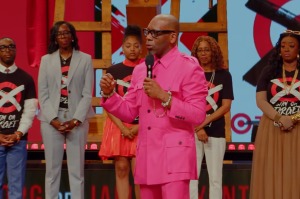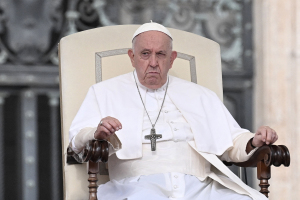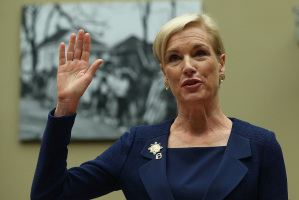Why Are Schools Banning the Bible in the Classroom?
In our own backyard here in Broward County, Fla. has arisen a disturbing story of a twelve year old boy (Giovanni Rubeo) getting in trouble with his teacher for having the audacity of reading the Bible to himself during free time, when the children were free to read whatever they wanted to.
But his teacher singled out the Bible (a Christmas gift Gio treasures) because it was allegedly inappropriate to read in the school. In her own words, it was "the book he's reading as opposed to the curriculum for public school." Again, this was during free time.
She had told Giovanni on previous occasions not to read the Bible, so she called the student's father to berate him, leaving a message, saying, "He's not permitted to read those [religious] books in my classroom. He said if I told him to put it away, you [the dad] said not to do that."
The principal backed up the teacher, stating in a letter: "You child is permitted to read the Bible before school, after school and during lunch, in accordance to the law."
Knowing that their son's Constitutional rights were violated, the family has sought legal counsel from Liberty Institute, based in the Dallas area, which works around the country.
Jeremy Dys, attorney with Liberty Institute, told me in an email: "It seems that Broward County Schools is moving in the right direction in addressing this issue, but the Superintendent is yet to personally respond to the Rubeo family with his official regrets. The key question that we have asked and the schools have not yet answered is this: 'Did this teacher do anything wrong when she tried to remove the Bible from Giovanni Rubeo on April 8, 2014?' Until we have that answer, we cannot believe this situation to have been fully addressed."
Until the answer comes, Ft. Lauderdale Tea Party members picket in front of the school.
Could Gio have read the Koran then? Or Playboy? The Bible alone seems to be singled out now.
Some school official's out-ACLU the ACLU. They go beyond what the high court has ruled on the subject. I looked up the original case that dealt with the Bible and the public schools going back to 1963, Abingdon v. Schempp. What was the issue? Reading the Bible as a devotional.
In that case, which I think went too far in jettisoning our heritage, the Supreme Court ruled: "…no state law or school board may require that passages from the Bible be read…." They struck down "state action requiring that schools begin each day with readings from the Bible."
The liberal Earl Warren court went on to say that this ruling should not be construed to mean banning the Bible from school, precisely what some school officials are doing these days.
They wrote: "The holding of the Court today plainly does not foreclose teaching about the Holy Scriptures or about the differences between religious sects in classes in literature or history."
They go on to speak of the influence of the book: "Indeed, whether or not the Bible is involved, it would be impossible to teach meaningfully many subjects in the social sciences or the humanities without some mention of religion."
To recap, they said: "morning devotional exercises in any form are constitutionally invalid."
But lest anyone construe their decision to mean the Bible was not allowed in public schools, they said: "Any attempt to impose rigid limits upon the mention of God or references to the Bible in the classroom would be fraught with dangers." Today those dangers are clear and present.
Our history is replete with our nation's founders and leaders extolling the benefits of Bible-reading. John Adams said about the Scriptures: "…the Bible is the best Book in the world. It contains more philosophy than all the libraries I have seen." And in 1789, George Washington referred to "The blessed religion revealed in the Word of God."
Patrick Henry said, "The Bible is worth all other books which have ever been printed…" President Jackson said the Bible is "the rock upon which our republic rests."
The Bible is the book that even the world's leading atheist says people should enjoy, at least as literature. Richard Dawkins, author of The God Delusion, said in reference to the Bible, "We can give up belief in God while not losing touch with a treasured heritage" (p. 344). Obviously, I don't buy his premise. Yet he calls the Bible "a major source book for literary culture" (p. 341).
So what's the problem here? Why is the Bible, the book that gave birth to education for the masses in the first place ("The Old Deluder Satan Act," Boston, 1642), to be banned in schools?
As the Supreme Court once said in a different case: There is not some gigantic magnet at the threshold of the public school, removing the Constitutional rights of those who enter.





























